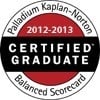Maximize Your Sales Strategy: Top Account Based Sales CRM Solutions for 2023
Looking to streamline your B2B sales and marketing efforts? Account Based Sales CRM provides a powerful framework for businesses focused on winning high-value accounts.
This article cuts through the noise to offer you a clear view of the top CRM solutions tailored for 2023’s account-based strategies. Simplify collaboration, sharpen targeting, and leverage analytics to drive greater sales success—all without the fluff. Here, discover how an Account Based Sales CRM can transform your sales performance and what to consider when choosing the right one.
Key Takeaways
-
Account Based Sales CRM enables targeted marketing and sales strategies by aligning sales and marketing teams on shared objectives, streamlining processes, and using analytics for customer insights to optimize sales strategies.
-
CRM features such as automation, synchronization, and personalized outreach efforts help sales teams focus on high-value accounts and tasks, leading to increased efficiency, market insights, and improved ROI.
-
Selecting the right CRM system, attuning it to your ABM strategy, integrating it with other tools, and training your team use it effectively are critical to successfully implementing an Account Based Sales CRM and unlocking its full potential.
Unlocking the Potential of Account Based Sales CRM

Imagine a tool that brings your sales and marketing teams together, focusing their efforts on the same target accounts and aligning their objectives. This is Account Based Sales CRM, a platform that enables a cohesive approach to pursuing specific individual accounts, streamlining operations, and enhancing digital marketing efforts. Coupled with advanced tools like Groove, it maximizes efficiency and effectiveness in identifying, closing, and renewing accounts.
Moreover, it harnesses the power of analytics to provide valuable insights into customer behavior, guiding companies to optimize their sales strategies and secure high-value deals with greater success. These benefits can be realized through the involvement of executives in directing strategy, planning features, and adopting a systematic approach to customer fit, guiding companies toward a more targeted account based marketing strategy.
The Role of CRM in Account Based Sales
A CRM system is essentially the backbone of Account Based Sales. It enhances B2B sales, reduces the sales cycle duration, and assists businesses in enhancing their account-based marketing success. Its role in managing customer data is pivotal, ensuring that teams have the essential information to efficiently target and interact with key accounts.
Its unique advantage lies in its ability to:
-
Boost internal communication and collaboration
-
Grant sales teams immediate insight into account activities
-
Link revenue to ABM campaign performance
-
Ensure all members are well-informed and in sync with the sales process and sales funnel.
Key Features to Look for in an Account Based Sales CRM
Key features to seek in an Account Based Sales CRM include:
-
Advanced targeting and automation capabilities
-
Solutions like HubSpot and Apollo that make running complete campaigns within the CRM a breeze, considering the ideal customer profile (ICP)
-
Essential automation features, such as list creation and lead scoring, that optimize the time of top salespeople and provide critical functionalities in an ABM strategy.
Integration capabilities are another important aspect, facilitating alignment between content strategy and delivering account-specific messages across sales and marketing teams, thereby boosting the efficiency and success of ABM campaigns.
How CRM Analytics Enhance Account Based Selling
CRM analytics have taken Account Based Selling to new heights.
Some examples of CRM analytics tools include:
-
Salesforce Einstein, which uses data from Account Engagement and Salesforce to generate clear scores and insights on the most engaged accounts
-
HubSpot CRM, which provides analytics on customer interactions and engagement
-
Zoho CRM, which offers analytics on sales performance and customer behavior
These tools help improve decision-making and efficiency, enabling informed marketing decisions.
Analytics enable companies to not only track ROI, but also gain comprehensive insights into customer behavior through a customer data platform, facilitating the fine-tuning of strategies for optimal impact.
Streamlining Sales Teams with ABM-Centric CRMs

The key to a successful sales team lies in its efficiency. And this is where ABM-centric CRMs come into play. By enhancing alignment and coordination between sales and marketing teams, the CRM allows for:
-
A unified strategy
-
Synchronized account-based experiences
-
Serving as a repository for sales collateral and training materials
-
Improving customer interactions and relationships with the brand
-
Streamlining sales and marketing processes
It also automates regular sales tasks like:
-
data entry
-
scheduling
-
email
-
reporting
-
lead capture
-
lead nurturing
-
follow-up
-
other processes
This reduces errors, improves productivity, and ensures compliance with industry standards.
Coordination Between Sales Reps and Marketing Teams
Effective ABM strategies hinge on the coordination between sales representatives and marketing teams. By aligning these teams around the common goal of securing a select few customers, businesses can stand out and successfully reach target accounts in ABM.
This collaboration directly contributes to the successful execution of ABM campaigns, ensuring a more efficient and effective marketing strategy.
Automating Routine Tasks to Focus on High Value Accounts
Time plays a critical role in account-based sales. CRM automation helps streamline regular sales tasks, allowing sales teams to focus more on high-priority activities and customers. By prioritizing high-value accounts, businesses can:
-
Gain valuable market insights
-
Optimize resource utilization
-
Achieve impressive return on investment (ROI)
-
Focus efforts on accounts with high success potential
-
Deliver personalized buying experiences to enhance customer acquisition and business expansion.
Examples of tasks suitable for automation include scheduling social media posts, automating email personalization, and delivering content downloads. This facilitates the customization of messaging and content, creation of personalized outreach programs, and centralized management and tracking of interactions with target accounts, thus enhancing the personalization of outreach for high-value accounts.
Personalization at Scale: Customizing Interactions with Strategic Accounts

A personalized approach is fundamental in Account Based Sales. This is where CRM comes in. By customizing content for each specific target account, companies can establish enduring relationships and boost conversion rates. Personalized outreach involves the customization of content for each specific target account.
Companies such as Andrei Zinkevich’s utilize strategies like direct mail outreach campaigns, which have demonstrated a 100% response rate, and employ direct mail to specifically target middle-of-funnel accounts.
Additionally, the use of dynamic content and targeted ads, such as those employed by Rollworks, tailored for key decision-makers at target accounts, can result in a notable reduction in cost per acquisition and an increased likelihood of securing more meetings and signed contracts.
Crafting Targeted Messaging for Key Decision Makers
Establishing a connection with key decision makers is vital in Account Based Sales. And this is where tailored messaging comes into play. CRM can help develop tailored messages for important decision makers by creating detailed persona-based profiles, setting up targeted campaigns, and providing a complete view of leads and prospects.
By understanding the target audience, aligning messages with communication goals, and creating compelling messages that resonate with the audience, businesses can enhance their sales strategies.
With targeted messaging, businesses can deliver personalized content directly to leads, contributing to improved ROI, customer satisfaction, and conversion rates. To establish robust connections with decision makers, it’s crucial to show:
-
Respect
-
Courtesy
-
Professionalism
-
Honesty
-
Transparency
-
Authenticity
-
Sincere intention to assist the decision makers and deliver value to them.
Utilizing Dynamic Content for Engaging Prospects
Dynamic content serves as a game-changer in the realm of Account Based Sales. This type of content is tailored to the individual, providing a personalized experience based on their actions and preferences. It contributes to improving engagement in Account Based Sales by:
-
Enhancing email engagement rates
-
Personalizing the subscriber experience based on behavior and preferences
-
Allowing for variations in email or landing page content based on the recipient’s account owner.
To effectively utilize dynamic content in Account Based Sales CRM, it’s recommended to:
-
Use intent data to identify relevant contacts
-
Develop email templates with dynamic sections tailored to recipient’s attributes or behavior
-
Customize the subscriber experience with dynamic email content
This type of content not only enhances the relevance and intuitiveness of the customer experience, but it also offers an effective means to boost conversions and stimulate online sales.
Building Your Target Account List with Precision

A precise target account list is the foundation of a successful Account Based Sales strategy. With the help of CRM data, businesses can identify the most valuable customers and prospects with the highest likelihood of making a purchase. The process involves:
-
Creating a detailed image of the perfect customer
-
Leveraging insights from the finance team regarding the customer types that yield the highest revenue
-
Engaging representatives from various departments to prevent isolated information.
Target accounts can be segmented by user properties such as demography, geography, and behavior, enabling more deliberate targeting and personalized outreach. The strategic benefits of creating a tiered target account list include the ability to allocate different levels of resources, personalization, and attention to each tier, providing clarity on which target accounts to focus on.
Identifying Ideal Customers Through CRM Data
Pinpointing the ideal customers is of utmost importance in Account Based Sales. An ideal customer profile within the context of Account Based Sales refers to a comprehensive depiction of a company that aligns perfectly with your solution.
CRM data can be utilized to determine an optimal customer profile through analysis of the overall audience, identification of contacts with similar data, and leveraging the data gathered within the CRM system.
Specific CRM data points that can be useful in identifying high-value accounts include:
-
Quantitative data
-
Qualitative data
-
Descriptive data
-
Identity data
By prioritizing leads and opportunities based on customer data, CRM can increase the likelihood of successful conversions.
Segmenting Accounts for Tailored Strategies
Optimizing sales efforts can be achieved by segmenting accounts for bespoke strategies. It involves considering factors such as industry, company size, and revenue potential, as well as demographic data including age, gender, and location. CRM data can be effectively utilized for segmenting accounts by categorizing the data into groups based on shared characteristics, such as demographics, behaviors, or preferences.
This approach provides several benefits, including facilitating targeted engagement with the appropriate customers through relevant ads, aligning marketing strategies with the specific needs and preferences of each segment, addressing unique pain points, providing personalized solutions, optimizing sales processes, and concentrating marketing and sales endeavors.
The process for implementing account segmentation in an account-based sales CRM involves:
-
Dividing the total accounts list into target market segments
-
Defining segmentation objectives and criteria
-
Reviewing best customers
-
Defining the Ideal Customer Profile
-
Creating buyer personas
-
Developing tailored content and strategies for each segment.
Measuring Success: CRM Metrics for Account Based Sales
Maintaining a record of CRM metrics is vital for assessing the success of an Account Based Sales strategy. These metrics include:
-
Account engagement score
-
Account penetration rate
-
Account progression rate
-
Customer lifetime value
-
Average deal size
-
Total available market
-
Ideal customer profile
-
Accounts in-market
-
Conversion rate (win rate)
-
Sales velocity
-
Churn rate
One such metric, account level penetration data, serves as a crucial metric in CRM, enabling the measurement of account engagement and success in account based sales strategies. To measure engagement and conversion rates in account based sales, companies commonly use an account engagement score, while conversion rates are typically calculated by dividing the total number of conversions by the total number of opportunities and multiplying by 100 to obtain a percentage.
Tracking Engagement and Conversion Rates
The success of sales outreach can be evaluated effectively by monitoring engagement and conversion rates. Conversion rates in an account-based sales CRM are determined by dividing the number of sales by the total number of leads. By effectively utilizing CRM features, teams can enhance lead nurturing, optimize the sales process, increase productivity, and ultimately drive revenue growth.
The tracking process, however, is not without its challenges. These typically involve:
-
Inaccurate data, which may result in flawed insights and decision-making.
-
Difficulty in maintaining accurate customer information.
-
Lack of attentiveness to customer feedback.
These challenges can be addressed by maintaining accurate customer information and being attentive to customer feedback.
Understanding Lifetime Value and Customer Acquisition Cost
Grasping the concepts of customer lifetime value and customer acquisition cost is essential for refining your sales strategy. Customer lifetime value (CLV) quantifies the average customer’s revenue generated throughout their entire association with a company. The customer acquisition cost (CAC), on the other hand, is calculated by dividing the total cost of sales and marketing efforts by the number of new customers acquired.
By utilizing CRM, you can:
-
Target ideal customers more accurately
-
Customize messages effectively at scale
-
Manage sales pipelines with greater control
-
Align sales and marketing strategies to operate cohesively
This can help reduce customer acquisition costs.
Implementing an Account Based Sales CRM

Implementing an Account Based Sales CRM is a step-by-step process that involves careful selection of the platform, training of the team, and integration with other sales tools. Some of the top Account Based Sales CRM platforms for 2023 include HubSpot ABM Software, Similarweb, Terminus, Marketo, Madison Logic, 6sense, RollWorks, DiscoverOrg, Mailtastic, Wrike, EngageBay, Personyze, LeanData, and Leadfeeder.
However, the path to successful implementation is not always smooth. The primary obstacle for ABS practitioners is often the limited comprehension of the transition process. To navigate this, it’s advisable to adopt a phased approach, initiating with 30% of the organization forming tiger teams. Once the CRM is successfully implemented, companies typically experience significant improvements in their sales plan, forecast, and objectives 12 to 24 months after the implementation.
Selecting the Right CRM for Your Sales Strategy
Choosing the appropriate CRM for your sales strategy is a decisive step. When making this decision, it’s essential to consider:
-
Compatibility with your ABM strategy
-
Availability of a free trial for assessment
-
Scalability and usability for your sales representatives
-
Support for account-based selling
-
Targeting specific success metrics
-
Capability to measure account engagement levels, revenue generated, customer satisfaction and retention, as well as the attainment of goals established with the client.
A CRM system can contribute to the development of a sales team by streamlining administrative tasks, standardizing the sales process, and providing valuable insights into customer behavior.
Training Your Team for Maximum CRM Efficiency
For maximum efficiency, it is important to effectively train your team to use the CRM. A comprehensive understanding and proficient use of CRM tools are essential for ensuring alignment between sales and marketing teams in targeting accounts and messaging.
While this process may take time, typically around 6 months, the investment is well worth it as your team becomes proficient in utilizing the new CRM system.
Integrating CRM with Other Sales Tools
Workflow optimization and overall efficiency can be improved by integrating CRM with other sales tools. Some benefits of integrating a CRM with sales automation tools include:
-
Personalizing marketing and sales messaging
-
Establishing lead scoring models
-
Eliminating manual data entry
-
Improving organization
-
Streamlining the sales process for increased opportunities and performance tracking
Clear definition of integration goals that align with sales objectives, and ensuring smooth information flow between the CRM and other business applications can achieve a unified workflow.
Tools like HubSpot ABM software, LinkedIn Sales Navigator, and InsideView are recommended for integrating with a CRM for account-based sales. Finally, integrating Email Marketing tools with CRM can enhance account-based sales strategy by optimizing customer segmentation and facilitating personalized email campaigns.
Elevating Marketing Strategies with CRM-Driven Insights
Your marketing strategies can reach new heights with CRM-driven insights. CRM plays a crucial role in account-based marketing by utilizing CRM data to pinpoint the most suitable accounts for targeting and utilizing marketing automation functionalities to establish workflows that facilitate outreach and internal operations throughout an ABM campaign.
By harnessing these insights, businesses can create targeted marketing campaigns and optimize their approach to account-based marketing.
Case Studies: Success Stories of Account Based Sales CRMs
Real-world examples offer valuable insights into the potential of Account Based Sales CRM. A marketing software company that seamlessly integrated a CRM into their operations, and iRidium, which employed audience targeting, networking, and activation to generate 34 new sales opportunities are some of the success stories out there.
Companies such as DocuSign, Dialpad, and LiveRamp have also witnessed noteworthy growth after incorporating Account Based Sales CRM into their approaches.
Summary
In conclusion, Account Based Sales CRM offers a comprehensive approach to streamline your sales and marketing operations, target high-value accounts, and optimize your sales strategy. By understanding the role of CRM in Account Based Sales, identifying key features, leveraging CRM analytics, streamlining your sales teams, personalizing interactions, building a precise target account list, tracking key metrics, implementing the CRM, and utilizing CRM-driven insights, your business can achieve significant growth in revenue and customer relationships.
Frequently Asked Questions
Is HubSpot an ABM platform?
Yes, HubSpot offers a range of tools and features specifically designed for Account-Based Marketing (ABM), including personalized content and account-level targeting on platforms like LinkedIn. So, it can be considered an ABM platform.
What is an account based sales strategy?
An account-based sales strategy, also known as ABS, involves sales teams focusing on winning business from specific high-value accounts by identifying and targeting a specific list of accounts they believe they can win. This approach allows for a more targeted and personalized sales effort.
Does Salesforce have ABM?
Yes, Salesforce offers ABM solutions to help identify and target key accounts, supporting a more personalized customer experience and higher quality leads.
What is an ABM tool?
An ABM tool is a platform that enables B2B marketing and sales teams to run account-based marketing programs at scale. It empowers personalized marketing and sales efforts on a focused set of strategic accounts to align with the company's goals.
How does CRM enhance Account Based Sales?
CRM enhances Account Based Sales by streamlining processes, managing customer data, facilitating collaboration between teams, and providing valuable analytics, ultimately leading to improved efficiency and increased personalized targeting.


